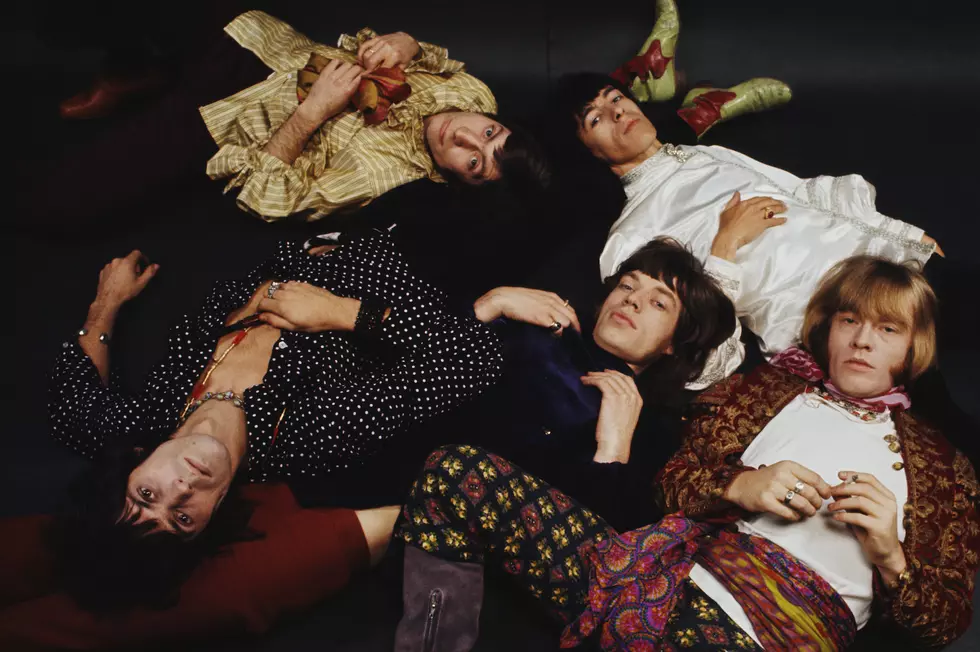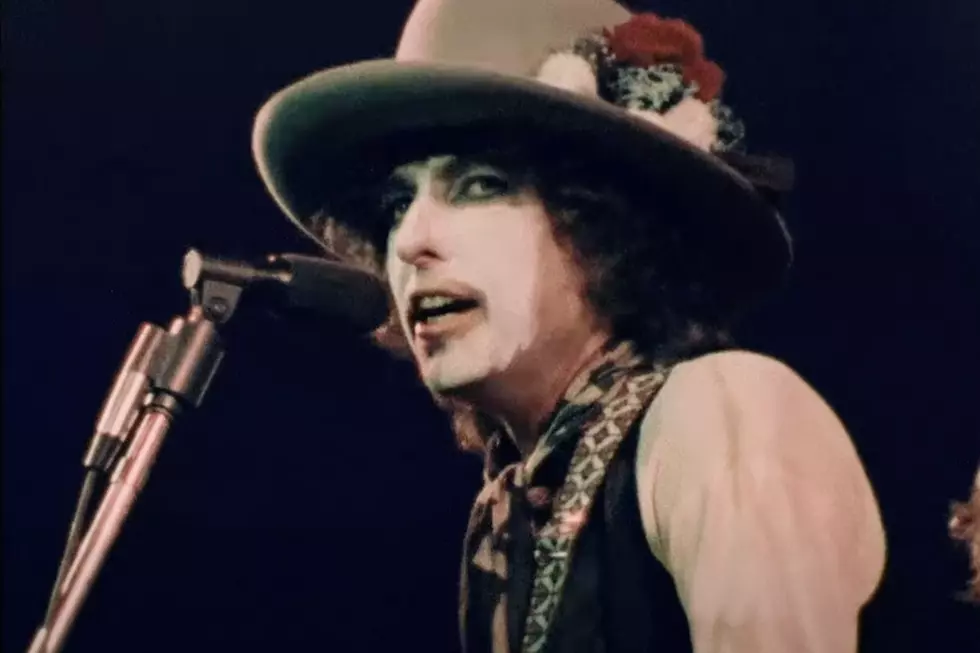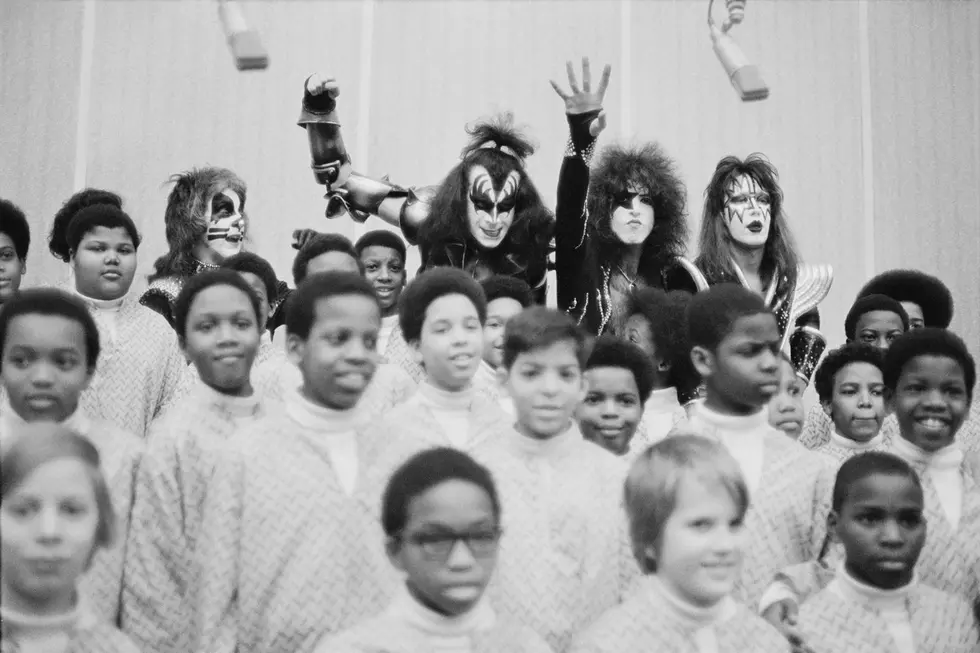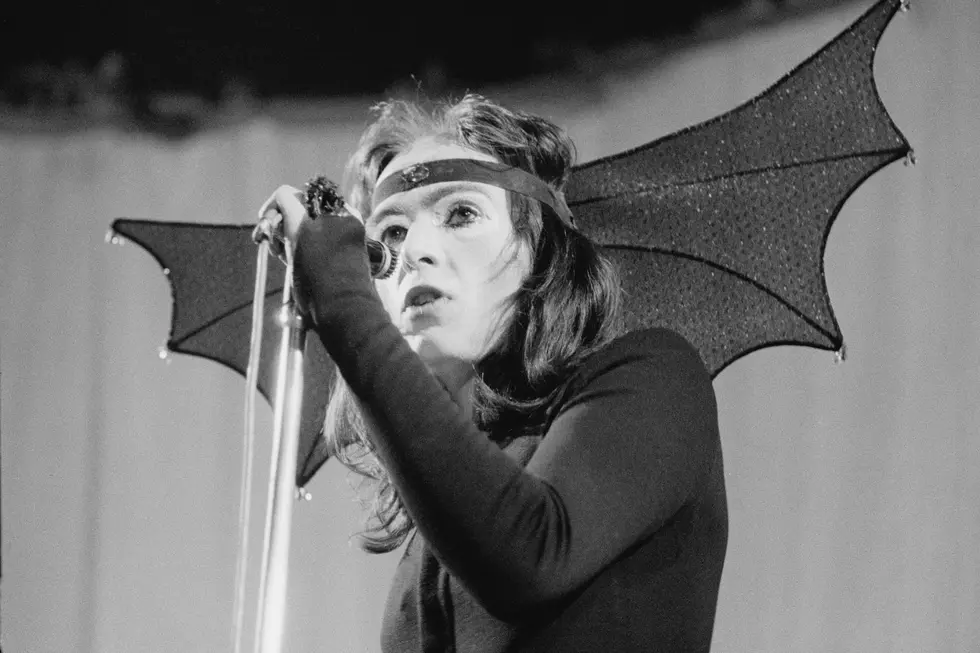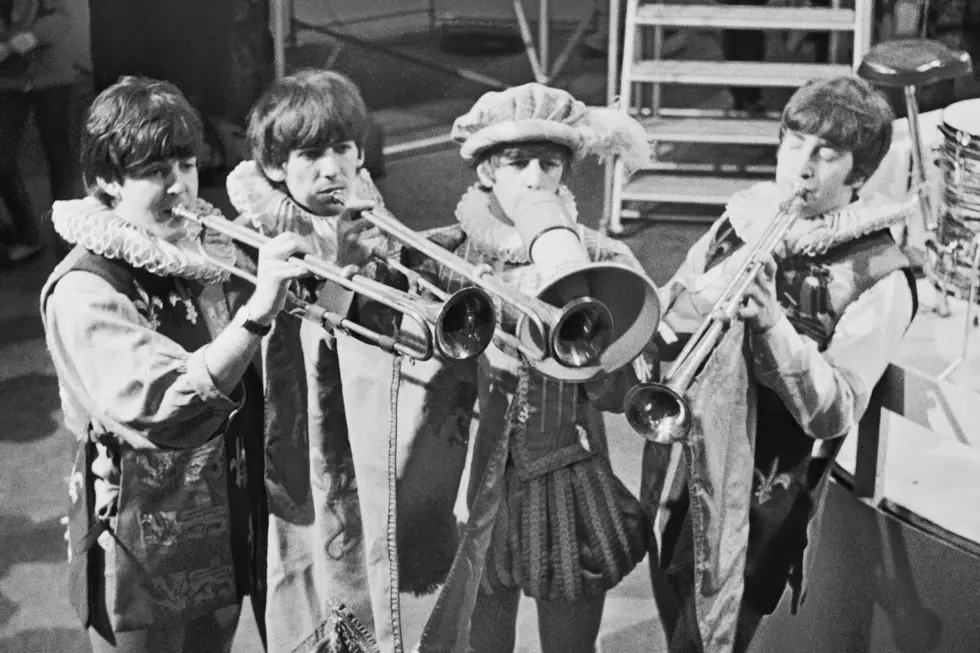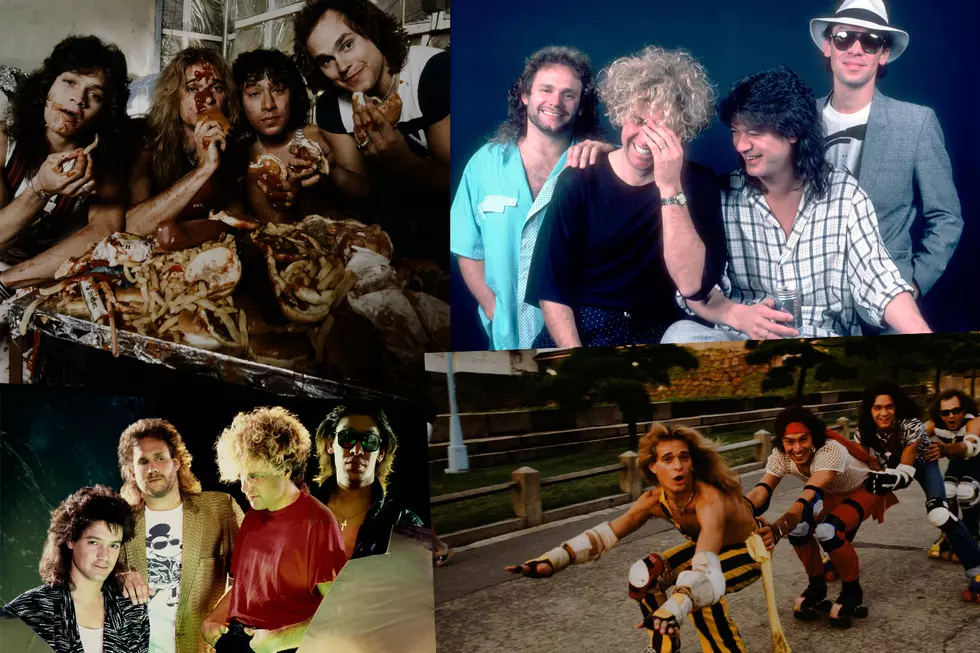
The 10 Weirdest Van Halen Songs
Van Halen had more than their share of contradictions.
They began life as a party band but were also home to one of rock's most inventive musicians in guitarist Eddie Van Halen, who spent countless hours toiling in isolation perfecting both his craft and instruments. Their fun-loving music, videos, fashion sense and personalities served as the template for a generation of bands, yet they were also at the center of two of the nastiest breakups in rock history.
So, yeah, things could get weird around Van Halen sometimes. They had an unparalleled gift for blending hard-rock chops and pop smarts and a knack for staying creatively ahead of their peers. Bold and sometimes strange musical experimentation played a role in that success, as you'll note in the below chronological look at the 10 Weirdest Van Halen Songs.
"In a Simple Rhyme/Growth"
From: Women and Children First (1980)
Van Halen's first two albums were comprised of songs written during their club performance days. Their third LP took advantage of the chance to write new material, expanding Van Halen's palette and exploring more complex arrangements. One of the clearest and most distinctive examples is the album's closing track, "In a Simple Rhyme." It's a poppy, progressive and somewhat weird rock song that sounds like Rush attempting to write a romantic ballad. After the song's gentle fade-out comes another surprise: a 30-second instrumental featuring a brontosaurus-sized guitar riff. According to The Van Halen Encyclopedia, the plan was for "Growth" to be expanded into a full song that would kick off the band's next album. That didn't happen, but they would occasionally play the song at their concerts, including a 1986 version featuring both Eddie Van Halen and Sammy Hagar on guitar.
"Sunday Afternoon in the Park/One Foot Out the Door"
From: Fair Warning (1981)
After sneakily replacing his guitar with an electric piano on Women and Children First's "And the Cradle Will Rock ...," Eddie Van Halen dove deeper into synthesizers with the follow-up, using an inexpensive Electro-Harmonix micro-synthesizer to come up with "Sunday Afternoon in the Park." It's a funky and creepy two-minute instrumental that sounds like George Clinton's idea of a John Carpenter film score. The tempo switches to a hyperactive electro-boogie for the conjoined "One Foot Out the Door," as David Lee Roth tries not to get caught with somebody else's wife. It's all topped with one of Van Halen's fiercest guitar solos, which fades out too quickly.
"Big Bad Bill (Is Sweet William Now)"
From: Diver Down (1982)
One of the main sources of friction between David Lee Roth and Eddie Van Halen was over the latter's use of keyboards. Roth feared it would upset the band's fans, who wanted only to see Van Halen in "guitar god" mode. (As "Jump" and the band's string of keyboard-based '80s favorites proved, Roth was wrong.) But it was Roth who suggested that Van Halen's father, Jan, play jazz clarinet on the band's cover of the 1924 Milton Anger and Jack Yellen song "Big Bad Bill (Is Sweet William Now)" on this covers-heavy LP. "He was nervous as shit," said Van Halen, recalling his dad at the recording session. "We're just telling him, 'Jan, just fuckin' have a good time. We make mistakes! That's what makes it real.' I love what he did."
"Hot for Teacher"
From: 1984 (1984)
The final single of David Lee Roth's first tenure with Van Halen was the sorta weird "Hot for Teacher." How many hit songs can you think of that start with a 30-second drum solo, followed by an extended guitar solo? Roth doesn't appear until more than a minute into the song, speaking to his "classmates," rather than singing, as Eddie Van Halen suddenly shifts to chicken-pickin' rhythms. A traditional verse-and-chorus structure finally appears, but the band never stays in one place for long, blending speed-metal riffs with high-school humor and a big Broadway-worthy chorus. It was all too perfect to last: Soon after the song's release, everything went to hell.
"Inside"
From: 5150 (1986)
"Man, what kind of crap is this?" That's the opening question Sammy Hagar asks on the closing track of his first album as Van Halen's new singer. After using the first eight songs on 5150 to establish the new lineup as a commercial and artistic force, Van Halen cracks open the fourth wall and directly if obliquely addresses the controversy that ensued after Hagar was hired to replace Roth. Over a thumping synth-rock groove, Hagar gets meta about what he's learned from his new bandmates: "Now me, look, I got this job not just being myself," he says. "I went out I bought some brand new shoes, now I walk like something else." He gets more serious as the song goes on, hitting some wild vocal heights while singing about feeling the need for "something special, someone new, some brand new group to sink my teeth into."
"Mine All Mine"
From: OU812 (1988)
After proving they could use keyboards to craft hit pop singles and ballads, Van Halen took a more serious step with this LP's opening track. Clocking in at over five minutes, the complex "Mine All Mine" treads near jazz-fusion territory and showcases a new lyrical depth that almost drove Hagar past the breaking point. "It was the first time in my life I ever beat myself up, hurt myself, punished myself, practically threw things through windows, trying to write the lyrics," he told Martin Popoff in 2010.
"Pleasure Dome"
From: For Unlawful Carnal Knowledge (1991)
For the most part, For Unlawful Carnal Knowledge marked a return to straightforward guitar rock for Van Halen. The hit single "Right Now" was the only song to feature keyboards; almost everything else follows a Standing Hampton-on-steroids formula. But the seven-minute "Pleasure Dome" takes a weird turn into progressive rock, with the Van Halen brothers and Michael Anthony daring each other to go deeper into King Crimson-style madness. Hagar's cosmically themed vocals are fine but seem almost beside the point. When the band performed the song live, it was usually instrumental.
"Strung Out"
From: Balance (1995)
Ever wanted to hear Eddie Van Halen destroy a piano? According to the Van Halen Encyclopedia, while renting composer Marvin Hamlisch's beach home in 1983, Van Halen "threw everything he could find into the piano and raked various items across the strings, including ping-pong balls, D-cell batteries and even silverware." Supposedly, there are hours of tapes documenting this, but Eddie Van Halen mercifully selected the best 90 seconds for inclusion on the band's final album with Hagar.
"Crossing Over"
From: Balance Japanese Edition (1995)
Van Halen released only one non-album B-side, and it was a pretty strange one. In 1983 Eddie Van Halen composed "David's Tune," a tribute to a friend who died by suicide, handling all the instruments and vocals. After joining Van Halen in 1985, Sammy Hagar was eager to flesh out the track, but Van Halen kept "Crossing Over" in the vaults for nearly a decade, until the death of the band's manager, Ed Leffler. A full-band take was recorded and then blended with the guitarist's original version, which can be heard in the left channel of the released recording. The sonic effect is otherworldly, a perfect match for the song's subject matter.
"How Many Say I"
From: Van Halen III (1998)
Van Halen III is the most criticized album of Van Halen's career, and much of the scorn is directed at the closing "How Many Say I," which features Eddie Van Halen on his only lead-vocal performance. The piano-based track is reminiscent of a late-era Roger Waters ballad and is an odd creative choice for the band, which was in the process of introducing its third singer, Gary Cherone. "They forced me," Van Halen told Billboard at the time. "Don't be shocked when you hear the vocal." "Maybe we were being too artsy-fartsy," Cherone later admitted to Rolling Stone. "But I thought it was great."
The Best Song From Every Van Halen Album
Gallery Credit: Matthew Wilkening
Five Little-Known Van Halen 'Poundcake' Facts
More From 92.9 The Lake

